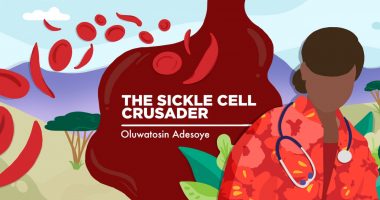Jasper Raises More Than $50M to Advance Its Potentially Safer Conditioning Therapy for Stem Cell Transplant

unsplash
Jasper Therapeutics has raised an additional $14.1 million to finance the development of its investigational conditioning therapy, JSP191, as a safer and more effective treatment to prepare patients for stem cell transplant.
The investment, led by Roche Venture Fund and sponsored by other investors, increases the company financing to more than $50 million, the company stated in a press release.
JSP191 (formerly AMG191) is designed to replace toxic chemotherapy and radiation therapy as conditioning regimens to prepare patients for stem cell transplants in a safer and more effective way.
A stem cell transplant involves two main steps: conditioning, which consists of removing the patient’s diseased or damaged hematopoietic stem cells (from which all blood and immune cells develop) and replacing them with healthy stem cells that will reconstitute healthy bone marrow.
During a stem cell transplant, patients can either receive healthy stem cells from a donor, known as allogeneic transplants, or the patient’s own stem cells corrected by gene therapy. This type of genetically-corrected autologous stem cell transplant can be used to cure genetic diseases caused by mutations in a single gene, as is the case in sickle cell disease.
Conditioning plays an important part in the success of a transplant. It clears the patient’s own ill cells in the bone marrow, leaving space for the transplanted healthy stem cells to effectively engraft and replace them. However, current regimens rely on toxic treatments using radiation or chemotherapy that damage cellular DNA and lead to short- and long-term side effects, including damage to organs and prolonged hospitalization. For this reason, many patients cannot undergo a stem cell transplant, so safer and more effective approaches are needed to bring this potentially curative treatment to more patients.
Jasper Therapeutics, joined by the California Institute for Regenerative Medicine, is developing JSP191 to meet that need.
JSP191 is a humanized antibody that binds to CD117 (also known as c-Kit), a protein receptor that’s expressed on the surface of hematopoietic stem cells and required for stem cells to survive. By targeting CD117, JSP191 disrupts signals that are essential for these cells to survive, leading to their death.
Early studies have shown that JSP191 is able to inhibit the formation of new human blood cells and safely eliminates hematopoietic stem cells, both in cells cultured in the lab and in animal models.
Based on these promising data, Jasper advanced the agent to the first clinical tests in humans. According to the company, JSP191 has been evaluated in more than 80 healthy volunteers and patients.
A Phase 1/2 study (NCT02963064) is ongoing in patients with severe combined immunodeficiency (SCID), a rare disorder in which infection-fighting immune cells called lymphocytes fail to work. The trial is testing pre-treatment with JSP191 as a single therapy in SCID patients undergoing a donor stem cell transplant, the only curative treatment for the disease.
Initial results from the study — presented at the 2019 American Society of Hematology Annual Meeting in December — showed that JSP191 safely cleared patient’s bone marrow cells and facilitated the engraftment of donor stem cells, with minimal to no toxicity in four of six patients evaluated to date.
“These results suggest that antibody conditioning for [hematopoietic cell transplantation] may be preferable to traditional chemo(radio)therapy conditioning, especially in patients with non-malignant diseases and/or increased risk of toxicities due to such agents, such as certain forms of SCID, Fanconi anemia and sickle cell disease,” the researchers wrote.
Jasper Therapeutics plans to expand JSP191’s clinical development beyond patients with SCID.
“We expect to initiate clinical trials of JSP191 in 2020 to evaluate it as a conditioning agent in patients undergoing hematopoietic cell therapy for acute myeloid leukemia, myelodysplastic syndrome and Fanconi anemia, and IND [Investigational New Drug]-enabling studies for sickle cell disease and autoimmune indications,” Judith Shizuru, MD, PhD, Jasper Therapeutics co-founder and member of the board of directors, said in a press release.






